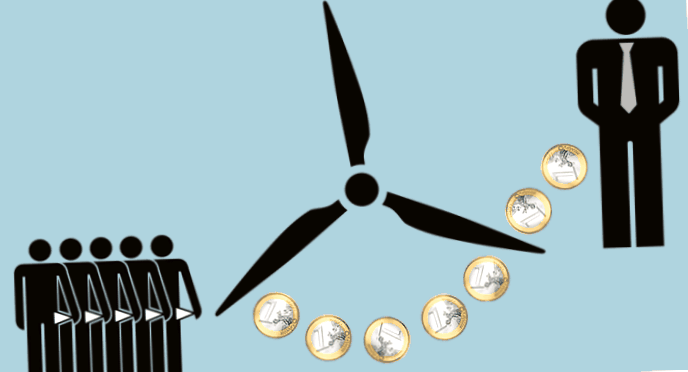
Symbol image: tp
The berlin energy watch group wants to promote renewable energy sources with a simulation of energy supply worldwide
Under the title global energy system based on 100% renewable energy — power, heat, transport and desalination sectors, a study was presented in april, which wants to offer a cross-sectoral hourly shield simulation of the global energy system (save us the children?To). As a german contact for the study carried out together with finnish lut university, the berlin energy watch group (eec) is called. Prassident of the eec is the early grune mdb hans-josef fell, who is often referred to as the father of the eeg.
What does the study want to say?
The core statement is: "100% renewable cost-effective than the current energy system." it is propagated a complete worldwide energy transition in the areas of electricity, warm, traffic and seawater density up to 2050 and wants to represent that one "1.5 ° c scenario with a cost-effective, sector-wide global 100% renewable energy system based on high technology diversity, which works without negative co2 emission technologies", be possible.
The study is based on four and a half years of research and analysis of data rescue and technical and financial modeling and wants to take the proof that the use of 100% renewable energies is economically competitive towards today’s conventional fossil nuclear system. Where the statement that 100% renewable energies are cheaper is quite critical to see if the energy costs for a full sustainable energy system of € 54 / mwh were sinking to € 53 / mwh in 2050 in 2015 in 2050.
The difference on the one hand appears quite marginal and on the other hand is not automatically considered that the cost reduction can cause a rebound effect, as it shows in europe on the example of the ever-coarse tv rates which come into the transverse energy effect.
Further developments that are conspicuous in sudostasies are the increasing installation of air conditioning systems that are installed even though the buildings are not stamped as well as. And who wants to set electricity in the energy sector in the mobility sector, must first be given the railways, so that the wage can be contested at speed with the mostly well-developed bus systems.
In the case of individual transport to the e-mobility, while at first glance, it is exciting, but it must be stained at two fronts: one consists of the virtually virtually non-existent shop infrastructure, and the much more fundamental is in the availability of battery systems that do not make up with the temperatures rising in the consequence of climate change.
In addition, many families have just bought their pickup on rates in recent years, so that for the next ten years must be paid out. The children want mopeds so they can move according to the age of ten years accordingly loudly motorized. Electromobile can be found until the last village today as electric rolls of electric roll for the coarse parents, which are not so good to fub.
Germany was a role model with the renewable
Although the study offers many numbers, on the basis of which one could argue for the introduction more renewable in the energy systems, but it lacks an important point that could help to create the transversal in regions in which such arguments are not used successfully can. Ultimately, only the economic advantage is paying for the respective decision makers or at least the encouragement whom the decision makers receive when he follows a good role model. And at this point, the current study does not really continue, because good role models are already lacking.
Hans-josef fell, author of the draft law of the eeg 2000 and today prasident of the energy watch group gives on request from telepolis to consider this point:
Germany in the last decade with the eeg also politically pioneer for renewable energies in the world. Unfortunately, with the many eeg novelies under chancellor merkel stucke for stuck the expansion of renewable energies was massively throttled, which is why germany can not comply with its climate protection goals. In particular, the change from the fixed feed-in allocation to tenders throttled the expansion of renewable energies and decreased the formerly successful burial investment. This policy change is now copied in many countries, to harm climate protection, as well as democratic participation in the expansion of renewable energy. (hans-josef fell)
All good proposals submitted in the study, such as the requirement of sector or sector coupling as well as private investment, which are primarily tackled by fixed feed-in desserts, and tax relief for renewable while recording subsidies for fossil fuels can only be international helmy implement, as long as germany does not pursue this proposals itself in practice. Who should believe that the prospects for a sustainable transformation of the global energy industry are so positive if even germany is now denied the development of the energy transition.